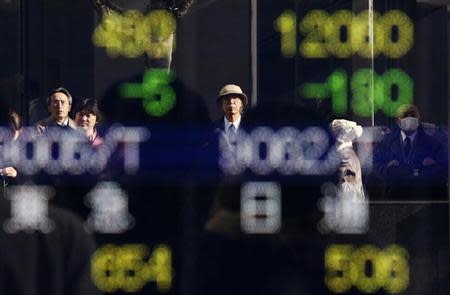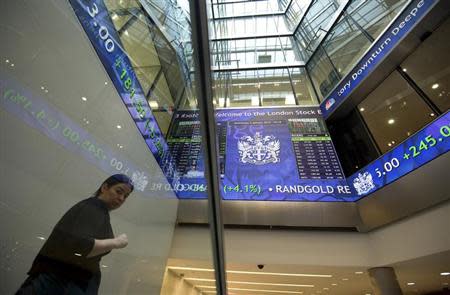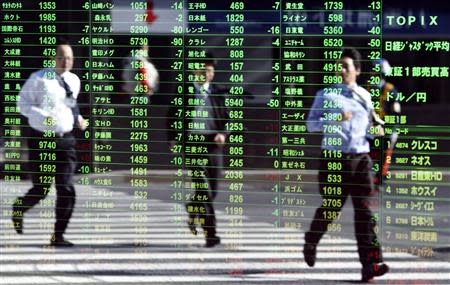Fed taper concern boosts dollar, weigh on stocks
By Toni Vorobyova LONDON (Reuters) - Global equities headed for their biggest two-week drop since June and the dollar hit 5-year highs against the yen on Friday amid concern the U.S. Federal Reserve could start scaling back its stimulus as early as next week. Stronger-than-expected U.S. retail sales data during the previous session, coming after last week's forecast-beating jobs report, have increased speculation the Fed will start winding down its bond purchases soon. That would reduce the stimulus that helped to drive global equities in recent months. "It's a tighter one than we originally thought. The data, especially the employment data and the retail sales, has been so strong that there is a reasonable probability of them actually making a taper and actually doing something in December," Alan Higgins, chief investment officer, UK, at Coutts. Such concerns saw U.S.-based funds pull $6.51 billion out of stock mutual funds in the past week, the biggest outflow this year, before the December 17-18 Fed meeting, according to Thomson Reuters Lipper data. The MSCI world equity index <.MIWD00000PUS> was down 0.1 percent at 391.92 points by 1203 GMT, taking its loses for the past two weeks to 2.5 percent and putting it on track for its biggest fortnightly loss since June. The pan-European FTSEurofirst 300 <.FTEU3> touched fresh two-month lows before recovering some poise to trade up 0.2 percent on the day. U.S. stocks futures, meanwhile, pointed to a flat start on Wall Street, where the S&P 500 index is headed for its worst week since August <.SPX>. Emerging markets were also hit, with sell-offs in currencies - including the Indonesian rupiah and the Indian rupee - on concern that tighter Fed policy could sap flows of money into emerging markets and push up borrowing costs there. "We maintain quite a constructive view on equities … (but) we have taken down our exposure to some of the smaller markets, as the tapering can be a hassle for some emerging-market currencies," said Hans Peterson, the global head of investment strategy at SEB Private Banking. The low-yielding Japanese yen was another victim of dollar strength. Indeed, the greenback romped up to 103.925 yen after finally clearing a mass of offers around 103.70/74, reaching territory not visited since October 2008. The prospects for a stronger dollar have in turn hit metals and oil, by making them more expensive for buyers outside the United States. January Brent, down 10 cents at $108.57 a barrel, was also pulled lower by the possible reopening of major Libyan ports, which could increase supply. Gold steadied around $1,225 an ounce after a two-day fall, but sentiment remained fragile. German bond yields held near seven-week highs in anticipation of the Fed meeting, chiming in with a rise in U.S. Treasury yields overnight. Given the scale of the market moves in anticipation of the Fed, though, Higgins at Coutts said a rebound was possible once the meeting is over, whether the Fed acts or not. "I think either way we can get a relief rally (for equities) post the Fed, because either we will get a very small taper and really strong guidance on rates, or we will get no taper," he said. (Editing by Larry King)










